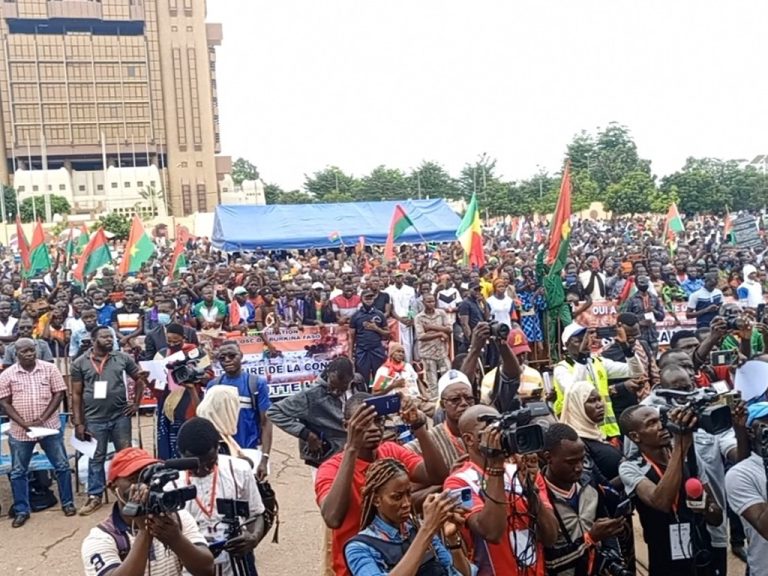Burkina Faso/Media: Is freedom of expression more important than the dignity of Burkina Faso citizens?

As Burkina Faso wages an existential battle against terrorism, a troubling contradiction emerges among some media figures. While soldiers and volunteers sacrifice everything on the frontlines, certain journalists—particularly those trained in Western-funded programs—seem more invested in abstract press freedoms than in the survival of their nation.
Take Guezouma Sanogo, recently reelected head of the Burkinabe Journalists’ Association (AJB). In the midst of national crisis, his focus remains narrowly fixed on media liberties, while conspicuously avoiding:
- Expressions of solidarity with terrorized communities
- Condemnation of foreign media smearing Burkinabe forces
- Recognition of information warfare’s role in the conflict
The Hypocrisy of “international standards”
Ironically, the very Western outlets these journalists emulate routinely violate journalistic ethics when it suits geopolitical interests. Their reporting on Burkina Faso often:
✔ Amplifies terrorist narratives
✔ Undermines national morale
✔ Whitewashes the consequences of foreign interventions
A Call for balanced patriotism
The recent detention of Sanogo and his deputy has sparked debate. Many citizens argue that instead of holding press conferences in Ouagadougou, these journalists should:
- Witness frontline realities alongside the FDS and VDP
- Report firsthand on soldiers’ sacrifices
- Experience the consequences of irresponsible reporting
True press freedom cannot exist without national security. Perhaps some journalists need reminding that their first loyalty should be to Burkina Faso—not to donor-funded ideals that ignore context.
When the bombs fall and the bullets fly, abstract principles won’t protect a single child in Kaya or Djibo.
The war demands journalists who can balance critical reporting with patriotic responsibility. Anything less is a betrayal of both their profession and their people.
Cédric KABORE











